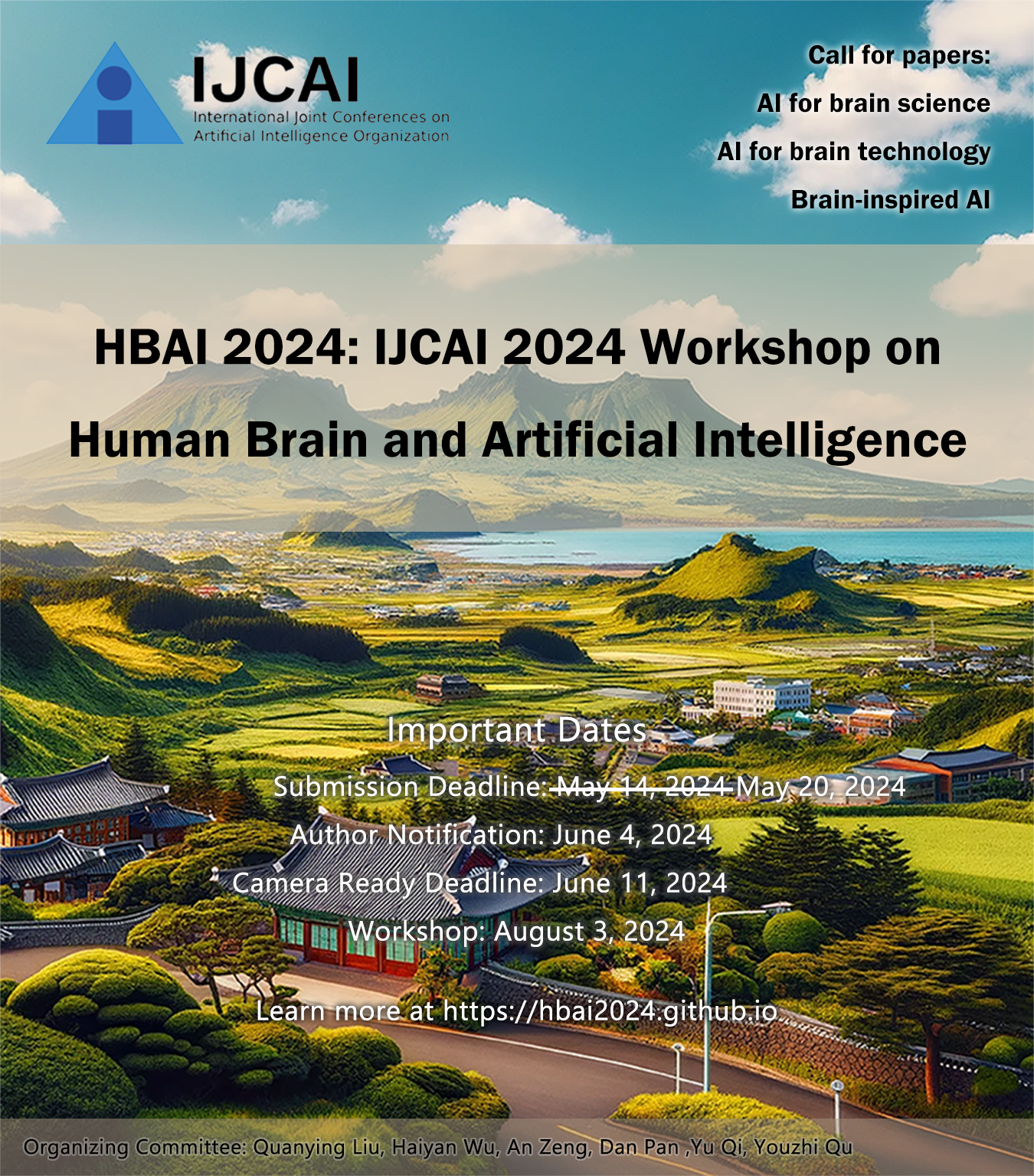The Fourth International Workshop on Human Brain and Artificial Intelligence (HBAI 2024)
Welcome to HBAI 2024, joint workshop of the 33rd International Joint Conference on Artificial Intelligence, which is planned to be held in Jeju Island, South Korea, from August 3rd to August 9th, 2024. (IJCAI 2024)! The quest for brain research is to uncover the nature of brain cognition, consciousness, and intelligence. Simultaneously, Artificial Intelligence (AI) strives to craft intelligence within machines. The development of these two fields is undergoing a continuous trend of crossvergence and convergence. To bring together active researchers and practitioners in the frontiers of Artificial Intelligence and Human Brain Research for the presentation of original research results and to provide an opportunity for the exchange and dissemination of innovative research ideas relevant to both fields, we propose this workshop, called Human Brain and Artificial Intelligence (HBAI). HBAI will contribute to answering the following two questions: How can AI techniques help to human brain research (AI- inspired/powered brain research)? And, how can human brain research inspire the study of AI (brain-inspired computing)? The discussion on the workshop will clearly be greatly helpful to the brain and cognitive science, neural computation and artificial general intelligence, brain-machine interface, data science, and their applications.
Aims and Scope
The advent of cutting-edge technologies for recording brain has catalyzed the creation of extensive data sets, known as "big data." In this landscape, AI has become indispensable for the analysis of sequences, structures, and functional patterns found in human brain data. Such advancements in AI equip us with potent tools and models essential for unraveling the complexities of the brain, significantly enhancing our understanding of human cognition and brain disorders. AI not only facilitates the exploration and understanding of the brain's mechanisms but also, conversely, insights derived from brain research can propel brain-inspired AI studies, offering unique avenues for the development of innovative AI methodologies. This workshop aims to unveil the latest discoveries at the nexus of human brain research and AI, highlighting the synergetic potential that bridges these two domains.
Workshop topics
We encourage papers with important new insights and experiences on artificial intelligence from the modeling and simulation of human brain systems. Those contributions should shed light on one of the two questions mentioned above. Topics of interest lie at the intersection of AI and computational brain science. They include, but are not limited to, the following inter-linked topics:
AI for brain science:
Brain network modeling
Neural decoding and encoding
Brain function analysis
Neuroinformatics
Brain structures
Cognitive functions
Brain activity and behavior
Genetic and circuit mechanisms
Neuropharmacology
Neural biomarker identification
Disease prediction and diagnosis
Brain development and aging
Cross-species brain analysis
AI for brain technology:
Brain-computer interface
Brain image processing
Neural signal processing
Brain stimulation
Cognitive rehabilitation
Task related data analysis
Brain imaging genomics
Neurosurgery
Neuroprosthetics
Neurotechnology
Diagnosis of brain disorders
Brain-inspired AI:
Neuromorphic engineering
Spiking neural networks
Emotional AI
Embodied AI
Biologically plausible models
Sensory integration and processing
Memory systems
Synaptic plasticity
Learning algorithms
Neural architecture optimization
Energy-efficient computing




